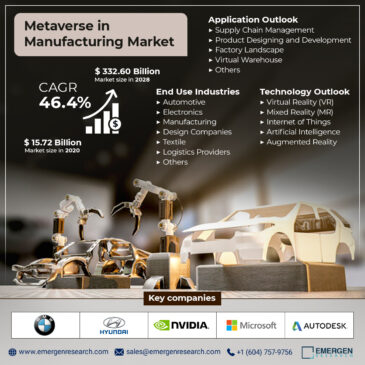The wealth management industry has witnessed drastic changes brought about by the introduction and implementation of modern technologies such as artificial intelligence (AI), the Internet of Things, and big data.
These new technologies are revolutionizing the way financial institutions and wealth managers offer services to high- net worth customers. With the use of AI, IoT, and data analytics firms can personalize experiences for their clients which in turn facilitates optimization operations as well as information regarding customers is collected.
However, the implementation of new technologies is accompanied by other challenges such as regulation and safety standards that need additional training.
This article describes AI, IoT, and big data trends in wealth management along with some suggestions on how to succeed in the evolving landscape.
The Role of AI in Wealth Management
Artificial intelligence shows promise in augmenting certain advisor tasks by automating routine back-office functions and complex calculations involved in areas like portfolio modeling and risk analysis. This allows advisors to focus more energy on value-added activities such as direct client engagement.
Furthermore, AI may enhance compliance through automated monitoring of transactions and alerts regarding potential red flags. In a similar fashion, AI assists firms by continuously tracking numerous market and economic variables to generate hyper-personalized investment strategies.
However, AI also has limitations since it cannot replace human qualities central to the client experience like empathy, emotional intelligence, ethical judgment, and the ability to form genuine connections. An AI-centric rather than client-centric approach then risks weakening the foundation of trust that is critical to the advisory relationship.
The Role of IoT in Wealth Management
Internet of Things (IoT) technologies can streamline certain aspects of wealth management by automating routine monitoring tasks. For example, IoT sensors in a family home could track usage of appliances, utilities, and other household systems to gather detailed insights into spending habits.
This data, when analyzed alongside other financial information with proper consent, allows advisors to spot areas where clients can cut costs or optimize resources. By flagging anomalies, IoT sensors may also quickly detect potential issues like unexpected property maintenance needs before they become larger problems.
However, the role of IoT should be limited to supplemental data collection, with personal consultation between advisors and clients still central to strategic financial planning and decision-making.
The Role of Big Data in Wealth Management
The growing volumes of structured and unstructured data from multiple sources offer opportunities to glean deeper insights into factors that influence clients’ financial decisions and goals.
With client permission, analyzing patterns in spending, investing, and borrowing along with market, economic, and lifestyle trends can help advisors better understand clients’ unique situations and priorities.
Big data analytics may then point advisors toward tailored recommendations and personalized projections. Nevertheless, making sense of individual clients still requires human judgment that considers qualitative, unquantifiable elements outside the scope of data like personal and family circumstances, values, and risk tolerance.
Firms also use big data analytics to segment clients into distinct profiles based on demographics, income levels, investment goals, risk tolerance, and other attributes.
This way, they can tailor products, services, pricing, and communications according to each segment’s unique needs. It also helps them analyze payment histories and credit reports to identify clients who may benefit from personalized debt management strategies.
Challenges of Emerging Technologies
In spite of these huge and developing IT opportunities, wealth managers need to deal with issues relating to compliance as well as security along with the associated skills. However, the regulatory bodies seem to be unable to determine how best they can control AI systems such as robo-advisors and algorithms that influence investment choices.
Organizations have to adopt suitable good governance frameworks so that the existing laws related to client suitability, privacy, and ethical working can be complied with.
As more sensitive data is collected through IoT and big data, protecting client information from cyber threats is also imperative. Leaders must implement strong data security practices, access controls, and privacy policies.
Additionally, embracing new technologies requires cultivating specialized skills that are scarce in the industry currently. Wealth managers require data scientists, AI engineers, IoT experts, and other digital talent to develop, integrate, and manage emerging systems.
Organizations should invest in reskilling and upskilling current employees while also attracting top tech talent from outside the industry. Leaders must foster a culture where both business and technical employees can collaborate to solve problems at the intersection of finance and technology.
The Future of Wealth Management
Going forward, AI, IoT, and big data will become fully embedded in wealth management operations. Robo-advisors will incorporate alternative data sources into investment strategies to enhance returns.
AI chatbots and virtual financial assistants will handle basic client queries through natural language conversations. Wearable IoT devices and smart home systems will deliver hyper-personalized recommendations and services.
Advanced algorithms will generate complex portfolio simulations based on real-time market changes. Firms integrating emerging technologies effectively will gain competitive advantages through superior client experiences, insights, and productivity.
While new risks will emerge as technologies evolve, wealth managers embracing change proactively will thrive. The most successful wealth firms will treat technology not as a separate initiative but as a core competency integrated throughout their organizations.
Leaders must invest in digital transformation to develop new revenue streams, deepen client engagement, and prepare the industry for future innovations that will redefine wealth management.
Final Thoughts
In conclusion, AI, IoT, and big data are revolutionizing wealth management at its foundations. While emerging technologies present both opportunities and challenges, firms that strategically leverage these innovations will enhance operations, optimize investments, and deliver exceptional client experiences.
To stay relevant, wealth managers must actively embrace new technologies, develop digital skills, and navigate evolving regulations – securing their role as trusted advisors in the digital era.
Those who act now to understand and integrate emerging tools will be best prepared to guide clients through future industry changes.



